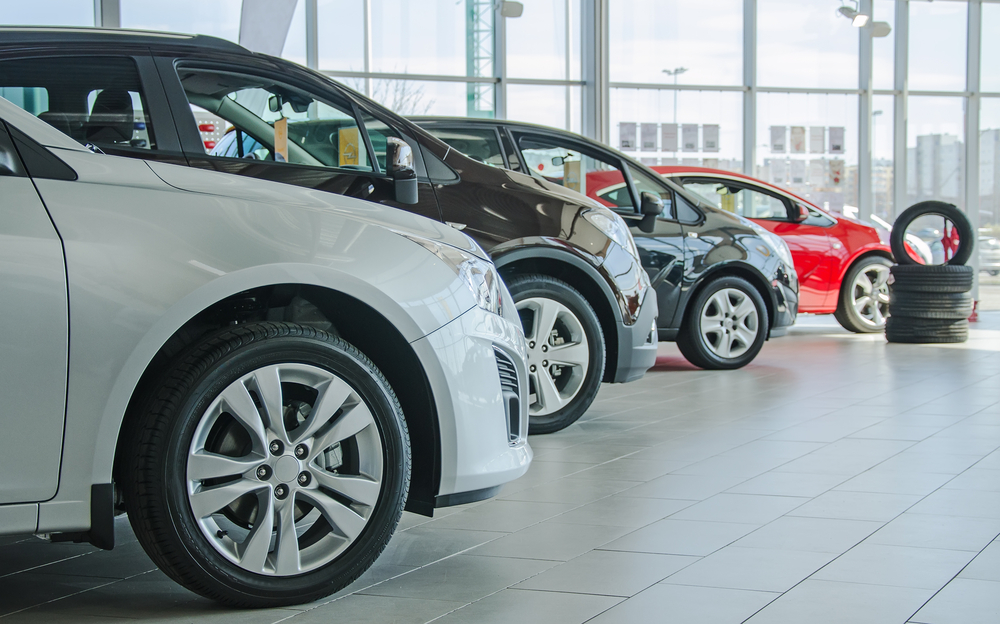
Car ownership has never been cheap necessarily, but consumers are especially feeling the financial burden right now. The national average for car insurance is more than $1,300 a year, and gas prices remain stubbornly high throughout the nation.
These factors are in addition to the fact that the cars themselves are incredibly expensive.
For the past year or so, buying a new or used car has been challenging. If you can even find one, the prices are eye-watering.
So at this moment, in the fall of 2022, what’s going on with car prices, and should you keep waiting if you’d like to buy?
Average Prices
Car prices around the country are still high. The average transaction for a vehicle is up 6.3% on a year-to-year basis if we’re looking at the period from September 2021 to September 2022.
The prices do seem poised to come down a tiny bit this fall, though but maybe not enough to make a significant difference for most people.
In September, the retail transaction price for new vehicles reached more than $45,620. The previous high was set in July 2022. It was $46,173 for any month.
While the September prices were a bit lower than the July transactions, auto prices are still in a mode of acceleration.
What’s the Problem?
Car prices aren’t seeming to want to come down because of global supply chain problems, according to J.P. Morgan, as noted in a recent report. They also cited the ongoing microchip shortage that’s slowing down or even halting production in the auto industry. The rising price for raw materials is raising car prices, and it’s all being made worse by the ongoing crisis in Ukraine.
J.P. Morgan’s lead automotive equity research analyst said they estimate half of the increase in the price of new vehicles is related to the passing along of increased input costs, including the costs of the raw materials. In the research report, the analyst said the weighted average cost for raw materials that are needed to produce new vehicles hit an all-time high last year. It went up 116% year-over-year, according to their data.
The research report noted electric vehicles are especially affected by increases in the cost of materials because key metals used to make the batteries for these vehicles have soared. The metals used to make electric vehicle batteries include lithium, cobalt, and nickel.
What About Used Cars?
There are overheated prices in the used vehicle market, too, giving consumers little reprieve if they’re in the market for a new vehicle.
According to CoPilot, which is a car shopping app, U.S. consumers are paying an average of $10,046 more for used cars than if the typical expectations for depreciation were happening. Data compiled by the U.S. Bureau of Labor Statistics showed a surge in used car prices of more than 7% year-over-year in June 2022.
What Should You Do?
If you really need a new car, you might be wondering if you should buy one now or wait. If you buy now, you know you’re getting record-high prices, but depending on the economic situation, those prices might be shattering more records in a few months.
It’s not easy to predict what’s going to happen over the next year, but some analysts feel that the supply is going to remain limited for both new and used cars, and demand will stay high. If you need a car within the next year, it’s not likely that waiting is going to help you get any better deals, at least not in any meaningful way.
There’s going to continue to be pent-up demand because many consumers are waiting it out and trying to get better deals. That’s likely to continue to push prices higher. In fact, the high price of vehicles could be the new normal.
The best thing you can do as you try to make a decision on whether or not to buy is to consider the brand of vehicle you’re looking at, your dealership, and your local market.
If you can wait more than a year, that might be optimal because inventories could start to come back and catch up with even pent-up demand.
Another option could be leasing a vehicle. When you lease, your monthly payment goes toward the depreciation of the vehicle. That’s around 50% of the car’s value over three years, so if your payoff amount is around 50% of the purchase price, then you might not see an impact on your lease payment.
If you can’t lease, know your standing before you visit a dealer or talk to a seller online. You need to have a monthly budget and stick to it.
